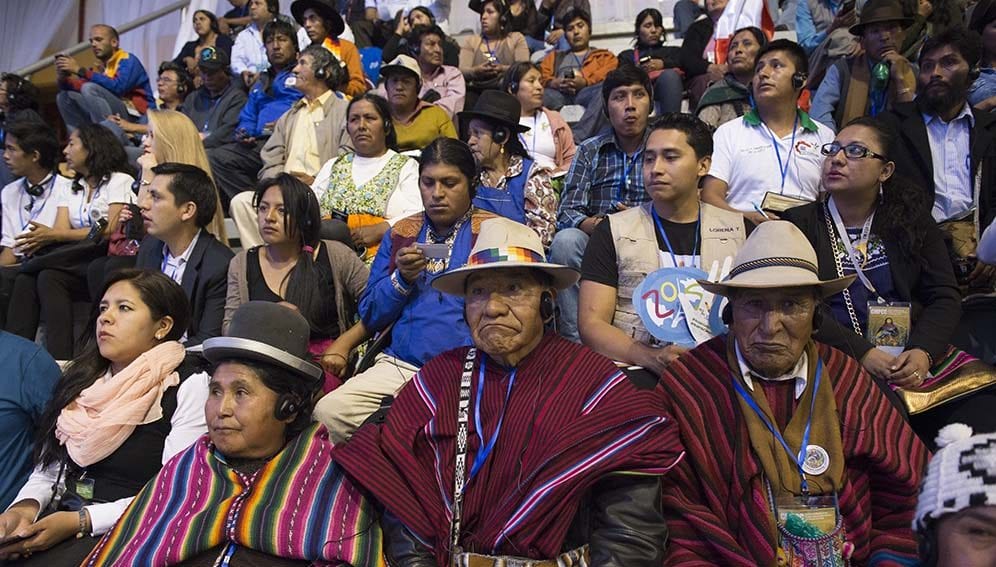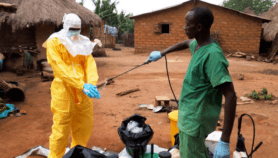27/03/20
Major climate, nature talks threatened by coronavirus

By: Fiona Broom
Send to a friend
The details you provide on this page will not be used to send unsolicited email, and will not be sold to a 3rd party. See privacy policy.
Record numbers of scientific conferences are being cancelled across the globe due to the coronavirus pandemic.
Ecologists and activists now fear key global environmental targets could fail to be set as major international meetings are thrown into doubt.
The fifteenth conference of the parties to the UN biodiversity convention, known as COP15, was planned for October in China, but delays to subsidiary body and working group meetings will force this to change. Questions now hang over the climate change conference COP26, tentatively scheduled for November in Scotland.
“Though the fall in pollution has tragically occurred as a side-effect of a strategy to tackle a deadly disease, it shows that it would be possible to meet the Paris targets and more if sufficient political will were there.”
Tom Wakeford, ETC Group
A new global biodiversity framework was due to be finalised at COP15, while parties to the climate convention are expected to deliver their nationally determined contributions for reductions in greenhouse gas emissions and establish rules for a global carbon market.
The biodiversity convention was established to ensure sustainable and equitable use of nature and genetic resources. Communities from least-developed countries with rich biological diversity, such as Bolivia, could lose the opportunity to lobby governments that the UN conferences provide, civil society groups fear.
If meetings move online, stakeholders from remote and low-income situations could be marginalised.
“COVID-19 has already taught us the dangers for everyone of countries deciding to take their own path based on short-term interests, rather than coming to a common understanding,” says biologist Tom Wakeford from ETC Group, a conservation and technology non-profit.
But, ecologist and author Carl Safina says that while these discussions are crucially important, “I don’t see that delays are likely to make huge real-world differences”.
“Ironically, the pandemic is doing more for climate and more for air and water quality than any of these discussions have done in the last 30 years,” says Safina, a professor for nature and humanity at Stony Brook University on Long Island, New York.
“The actual impacts on the actual world have been faster and more positive – not for people, and not for the way that we do things, but for everything else – than most of these processes that have been set up to discuss and set policy.”
Data from the Copernicus Sentinel-5P earth observation satellite and NASA’s Aura satellite have shown massive global decreases in nitrogen dioxide and other air pollutants emitted by industry and transport.
Scott Barrett, professor of natural resource economics at Columbia University’s Earth Institute, says that while biodiversity conservation and climate change are critical issues, “the next big meetings on these issues aren't critical. These meetings were set to consolidate on past approaches, which haven't been game-changing.”
However, ETC Group’s Wakeford says the biodiversity and climate conferences are urgent.
“The COVID-19 outbreak illustrates the complex interactions between deforestation, reduced biological diversity, ecosystem destruction, and human health and safety,” he says.
“COP15 will be a vital opportunity for governments to commit to a re-orienting of our globalised agricultural and food system into one based on much more localised systems, based on agroecological principles.”
Despite differing in their opinion on the value of the conferences, Barrett and Wakeford agree that the coronavirus pandemic response could set the stage for improved cooperation on climate and environmental issues.
“The silver lining may be that cooperative efforts to address COVID-19 inspire or spur efforts to address biodiversity conservation and climate change. For a number of years, support for multilateral approaches to shared problems has waned. If cooperation in addressing COVID-19 succeeds, the process of negotiating solutions to these other problems may be reinvigorated,” says Barrett.
“Though the fall in pollution has tragically occurred as a side-effect of a strategy to tackle a deadly disease, it shows that it would be possible to meet the Paris targets and more if sufficient political will were there,” Wakeford says.
“This debate needs to be had and COP26 would be a good place to have it. There’s no time to waste.”
Wakeford, along with Safina, fears the coronavirus could be used as an excuse by parties with vested interests to derail important decisions, while conditions for communities in the global South suffering the worst impacts of the climate and biodiversity crises deteriorate further.“Usually when there’s societal stress, the worst other kinds of things happen and the important things get left behind, the strong men find advantage, the poor get steamrolled even worse,” says Safina.
“And this is certainly a time of societal stress.”













